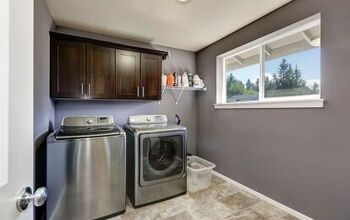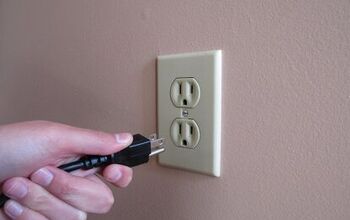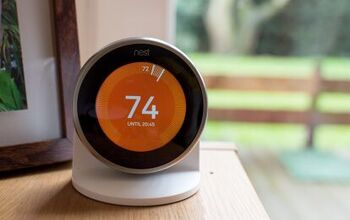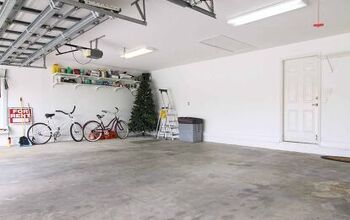6 Best Alternatives To Blue Iris Security Software

Having a smart home means that you’re going to need to find software that helps manage your safety and security. Blue Iris is one of the top home security camera software kits out there, and it lets you see all the things that go on in your home. Every feature comes at a fee, though, and those fees add up. Did you ever wonder what the most popular alternatives to Blue Iris are?
Currently, Omnigo and Google Nest are the two most popular alternatives to Blue Iris software. If you want to try additional alternatives, consider iSpy, Brivo, and Resolver as additional choices. When choosing a software kit, it’s important to keep the features that you want to have included.
Blue Iris is still the number one choice for people who need to have heavy security in their home or place of business. Even so, these alternatives are still valiant options.
Do You Need a Smart Home System Installation or Service?
Get free, zero-commitment quotes from pro contractors near you.

Is Blue Iris Software Meant For Home Security?
This is actually a hard topic to broach. On one hand, many people faithfully use Blue Iris as a software kit for their home security. On the other, it’s kind of hard to ignore that Blue Iris has a ton of corporate-focused features. I mean, it’s not like most of us are going to have 64 cameras that we need to access.
Blue Iris is deeply versatile, so trying to find a match that works with your setup is crucial. Due to the fact that this tends to be software that’s more commonly used in corporate or business settings, we’re going to offer a nice blend of both home and business options. After all, being a landlord is a job, too.
What Are The Best Alternatives To Blue Iris Software?
Blue Iris is one of the smartest home security software. The truth is that you’re going to have your work cut out for you if you want to get a near-perfect match. Let’s look at our top choices.
1. Omnigo
If you are a business owner who wants to have serious public safety software, then Omnigo is the best choice for you. This has a heavy bent on law enforcement and incident reporting. In other words, you will be able to get actionable advice on how to make your place of business safer.
As someone who does their work in and around their home, I can see the perks. However, this might be too much for people who want to get a simple visual ability. Even so, there’s so much to be said about the tools they offer for incident reporting.
Ideal For: Business owners who want to make sure their place is secure. Since Omnigo has a lot of ties to law enforcement, we’re going to make a suggestion that this should be your go-to if you live in a particularly dangerous area.
2. Google Nest
It seems like we can’t get away from the smart home staples that are famously popular. Google Nest is technically a smart home hub that also has a number of popular home security options under its umbrella. So, this system involves you buying cameras from Google, then setting them up so that you can access them from your home.
Homeowners love this because it comes with the perk of being accessible via a Google Nest hub or through your cellphone. You will love that level of convenience. Best of all? The Google Nest system can be tailor-made for your home’s specific needs.
Ideal For: People who want to keep their homes secure with a brand they trust, and a brand that has a ton of customer service. Since Google Nest is meant for mass consumption, you never have to feel left out from the crowd.
3. iSpy
With a name like iSpy, you can already tell that you might be taken aback by how much vision you get from iSpy. This is unique in a way, since it is an entirely open-source program that is meant to work with any IP cameras you want to use. So, if you’re a hacker, you might be able to expand the use of it to suit your specific needs at home.
This is a great suite for people who want to have a low-cost, high-quality way to work with all the cameras you have at home. Motion sensing, IFTTT, and Alexa compatibility are all part of the package here. Are you in love yet? Oh, I am too.
Ideal For: People who are techy and love the idea of being able to get affordable, malleable software they can use to keep their home secure. Since iSpy is open source, it’s also free to download. As long as you
4. Brivo
If you love the idea of having a full home security system like ADT but don’t want to have that extreme a price tag, you will adore Brivo. Brivo’s software kit is a full-service smart home monitoring system. Along with fire, flood, and similar warnings, you also get to enjoy common area access control.
This kit, much like Omnigo, is for business owners who might want to beef up their security. However, there’s a major difference here. This is meant to make access to your home easier for people who want to come and go. This makes it an ideal choice for homeowners who also have a rental property or multifamily unit.
Ideal For: People who need to have a security kit and are okay with getting lots of hardware to ensure that door access works. Brivo is ideal for people who own a large building and want to avoid having people who don’t belong there inside.
5. Resolver
Resolver is a corporate security company that has an amazing track record for monitoring access, managing risks, and improving your ability to avoid having problems arise later on. As one of the top trusted monitoring services out there, Resolver is all about making it easy to manage your data in one spot.
Of course, you also get a lot of love for their resident apps. This company lets you control residential access and amenities through their app. It’s amazing for people who want to have a convenient, corporate-style solution to both business and residential issues.
Ideal For: Corporations as well as landlords who own a larger apartment building. This is definitely meant to be more professional than it is personal. With that said, this is a great way to reduce loss and potentially improve your insurance quotes.
6. Shinobi
There is so much to be said about having all the bells and whistles, but the truth is that sometimes, you just need to see what’s going on around your home. That’s where Shinobi comes into play. This is a free (yes, FREE!) open source program that’s all about making it easier for people to watch their cameras.
As a CCTV program, this is primarily for NVR- based monitoring systems. You get to record what you need to, receive real-time updates, and also watch everything from a really nice UI. If you want something that you can set up on your own and doesn’t cost a dime, this is it.
Ideal For: Homeowners and business owners who want to have a budget solution that doesn’t feel like a budget solution. This is great for people who just want camera software without all the crazy features that other company solutions might try to push on you.
Do You Need a Smart Home System Installation or Service?
Get free, zero-commitment quotes from pro contractors near you.

Related Questions
How much does Blue Iris cost to use?
There’s some good news and some bad news about Blue Iris. The good news is that everything is a one-time payment. The bad news is that every single feature will cost a flat fee of $34.95. So while you only have to pay up once, you still have a very high price tag compared to other home security company offerings.
How many cameras will Blue Iris be able to handle at a single time?
As one of the top software kits for security companies, Blue Iris prides itself on being able to handle up to 64 different cameras at a time, per system. So, if you have a multitude of cameras, you should consider getting this system. All IP and CCTV cameras have the potential to be compatible with Blue Iris. It’s also compatible with almost all DVR brands on the market.
What is an NVR?
An NVR is the alternative to DVRs. Rather than having a Digital Video Recording mechanism, NVRs are Network Video Recorders. In other words, they don’t have any analog video recording hardware. Rather, they tend to save all the clips they get on a USB drive, SD drive, or disk drive. There are no physical “tapes” like a DVR recorder would have.Most people tend to think of NVRs as the new standard of CCTV footage. They tend to be more efficient, more space-saving, and somewhat more reliable. Since you don’t have to worry about finding space for tapes, NVRs are an ideal solution for people who want to minimize the chance of having too much stuff.

Ossiana Tepfenhart is an expert writer, focusing on interior design and general home tips. Writing is her life, and it's what she does best. Her interests include art and real estate investments.
More by Ossiana Tepfenhart



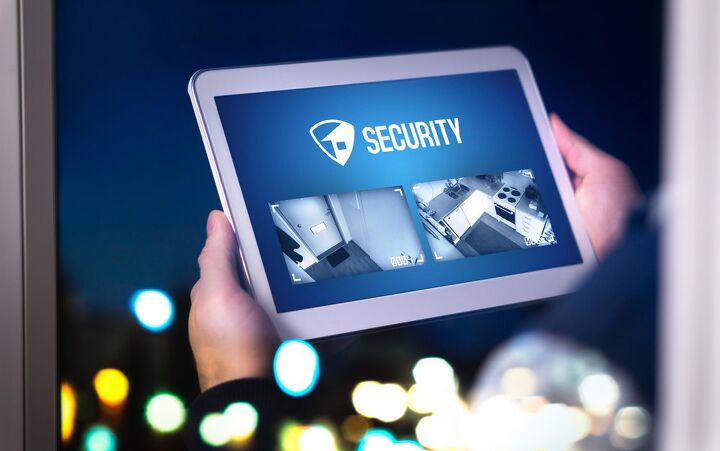






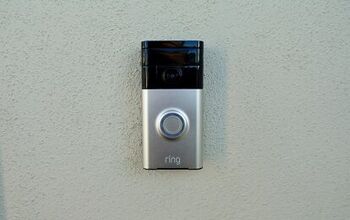


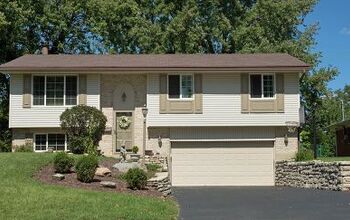

![10 Most Dangerous Neighborhoods in Baltimore [Updated]](https://cdn-fastly.upgradedhome.com/media/2023/07/31/9075655/10-most-dangerous-neighborhoods-in-baltimore-updated.jpg?size=350x220)
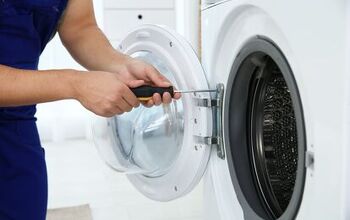

![Cost To Drill A Well [Pricing Per Foot & Cost By State]](https://cdn-fastly.upgradedhome.com/media/2023/07/31/9074980/cost-to-drill-a-well-pricing-per-foot-cost-by-state.jpg?size=350x220)





